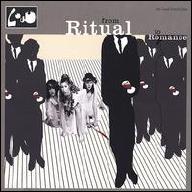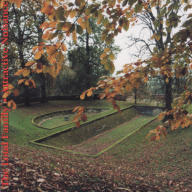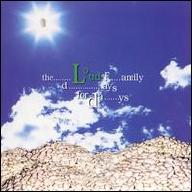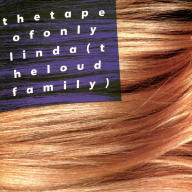In 1990, singer, guitarist, and songwriter Scott Miller broke up his acclaimed pop group Game Theory after a run of more than ten years; Miller once told a journalist that late in the band's career, he made a deliberate effort to create more commercial-sounding material to placate other members of the band, who had hoped Game Theory could follow a more commercially viable direction. While their final album, Two Steps from the Middle Ages, was their most accessible, it failed to make a significant dent in the marketplace. Miller seemed to have learned a lesson from this when he assembled his next group, the Loud Family, whose music bore clear ties to the psychedelia-influenced smart pop of his earlier work, but also pushed his fondness for dissonance, aural montage, and angular structures to the forefront; with the Loud Family, Miller clearly set out to create pop music that would aggressively push against the boundaries of that genre.
The Loud Family were formed in 1991 and released their first album, Plants and Birds and Rocks and Things, in 1993. Besides Miller on lead vocals and rhythm guitar, the group featured percussionist Jozef Becker (who had also sat in on the last three Game Theory albums); lead guitarist Zachary Smith, Paul Wieneke on keyboards, and bassist R. Dunbar Poor. One of the great stumbling blocks in Game Theory's career had been the group's inability to maintain a stable lineup, and the Loud Family appeared to suffer the same curse; while the band's original members stayed together long enough to record a second album, 1994's The Tape of Only Linda, and mount an extensive tour to support it, by the time the third Loud Family album appeared, 1996's Interbabe Concern, Becker, Smith, and Poor were out of the group, with Dawn Richardson signing on as drummer, Kenny Kessel joining on bass, and Miller taking over full responsibilities as guitarist. Interbabe Concern also marked Scott Miller's split with producer Mitch Easter, who was behind the board for the lion's share of Game Theory's output as well as the first two Loud Family discs. Miller took on production duties himself, and the band's oft-fractured sound became all the more extreme, with Interbabe Concern and 1998's Days for Days dominated by short musical fragments scattered between longer and more conventionally structured songs (half the tunes on Days for Days didn't even have titles).
Days for Days also introduced a third Loud Family lineup, with Miller and Kessel now joined by Alison Faith Levy on keyboards and drummer Gil Ray (who had previously been a member of Game Theory). The third edition of the Loud Family did a fair amount of roadwork (especially on the West Coast), and stayed together to record 2000's Attractive Nuisance, on which the group reverted back to their most organic and approachable sound since The Tape of Only Linda, while still holding on to their idiosyncrasies. However, despite positive reviews, the album proved to be the group's poorest-selling effort to date, and in 2001, Miller disbanded the Loud Family. In 2002, he helped assemble From Ritual to Romance, a live album compiled from recordings of 1996 and 1998 Loud Family dates. Miller also suggested he intended to retire as a professional musician, but shortly afterward, Aimee Mann announced plans to record an album with Miller at some point in the future. The collaboration with Mann was never completed (though a live recording of them performing the Loud Family's "Inverness" circulated online), but Miller did record a collaborative album with fellow pop songwriter Anton Barbeau, which was released in 2006 as What If It Works?, credited to the Loud Family Anton Barbeau, Sadly, Miller died on April 15, 2013 at the age of 53. Beginning in 2014, Omnivore Recordings launched an extensive series of Game Theory reissues, that returned their entire catalog to print in expanded editions. While Omnivore had no plans to do the same for the Loud Family's catalog, they did release an expanded edition of their Anton Barbeau collaboration, What If It Works?, in April 2022. ~ Mark Deming, Rovi


















